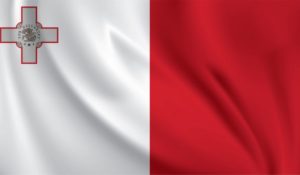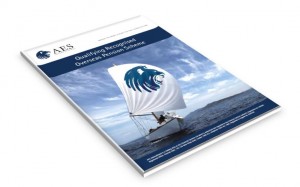2021 Update. If you’ve been told that you must appoint a Discetionary Fund Manager to your QROPS (DFM), contact us today to understand all of the DFM options available to you.
On the 1st of January 2019, substantive rules changes came into affect concerning the investment management of Maltese QROPS (Qualifying Recognised Overseas Pension Schemes). Maltese QROPS providers must now adopt the latest MiFID 2 (Markets in Financial Instruments Directive) rules which mean, among other things, that that the adviser, which the client is availing themselves of to provide advice on their QROPS investments, is properly Qualified and licensed where the client currently resides.
These changes have resulted in a large number of QROPS holders finding themselves now without professional advice. If this applies to you,  speak to us. Over the last few months we have been taking on clients where they have lost their adviser as a result of these changes. As non-commission, fee-based, advisers we may well also be able to cut your costs and improve your investment returns by taking over your Malta QROPS investment portfolio.
speak to us. Over the last few months we have been taking on clients where they have lost their adviser as a result of these changes. As non-commission, fee-based, advisers we may well also be able to cut your costs and improve your investment returns by taking over your Malta QROPS investment portfolio.
As multi-award winning International Financial Advisers on QROPS, drop us a line today for a fee-free initial consultation to discuss the latest changes in Malta QROPS rules and how these rules will impact you and your QROPS. We look forward to hearing from you.
If you’d like to understand more about these latest Malta QROPS rules changes, in greater detail, please read on below.
Malta QROPS: New Regulation Affects Tens of Thousands of UK Ex-Patriots
In a significant move, affecting over 30,000 UK ex-patriots, the Maltese Government have introduced new rules surrounding the administration of Malta QROPS. UK investors with overseas pensions based on the island, are now subject to MiFID2 rules (Markets in Financial Instruments Directive) which are designed to offer greater protection for clients holding this kind of pension scheme.
Malta QROPS have proven particularly popular with UK customers for a number of reasons. As an ex-Commonwealth country, its financial systems are similar to our own and conducted in English. The Malta QROPS offers draw down from age 55 and carries similar freedoms to UK based pensions with additional taxation benefits: Investments inside a QROPS are protected from UK taxes so can attract unlimited tax-free growth.
Changes to the rules came into effect in July 2019. If you are a Malta QROPS holder and you have not yet checked your advisor’s status, then it would be wise to do so as a matter of urgency.
How Have the Rules Changed?
The most important change under the new rules is the requirement for any Malta QROPS advisors to be registered, approved, and licenced within the country of residency of their clients. Many Independent Financial Advisors will already be compliant but there will be others who are not, and who will no longer be able to offer their services managing Malta QROPS.
If your advisor is not Qualified appropriately, you will need to find a new one, or face the possibility that your QROPS provider will withdraw its services. Prior to the changes, the only requirements from IFAs is that they hold IDD (Insurance Directive Licences) which are no longer sufficient.
The new rules have been viewed as problematic for some. The new legislation does not take automatically take into account the existing relationship between  advisors and their clients. If you have been with your IFA for a long time, he/she is likely to know your individual financial circumstances very well and take a more holistic approach when offering you advice. However, without the appropriate registrations, he/she will no longer be able to advise you about your Malta QROPS pension scheme.
advisors and their clients. If you have been with your IFA for a long time, he/she is likely to know your individual financial circumstances very well and take a more holistic approach when offering you advice. However, without the appropriate registrations, he/she will no longer be able to advise you about your Malta QROPS pension scheme.
There are also new rules on the type of investments that can be held within a Malta QROPS. These are designed to reduce any problems associated with unQualified funds and products and should offer greater protection for the client.
Transparency is Key
One of the other factors regarding the new regulation is the requirement to disclose all fees and commissions. Advisors have to be clear and upfront about costs and charges and the client has to sign a legal declaration saying that they have been informed about and understand all the advice that they have been given. With echoes of miss-selling in the financial sector over recent years, this provides the client with peace of mind that they will not incur any hidden fees or extras that could significantly impact on the value of their pensions over time.
Greater Protection for Customers
The new regulations are designed to offer greater protection for the client and facilitate more rigorous accountability for the advice that they are given.
Under the new rules, advisors are required to document the entire process and are held responsible for the products they recommend to their clients. They need to take account of the client’s ‘risk profile’ when selling them products and regularly monitor their circumstances to ensure that the portfolio suits each stage of the QROPS. This forces them to take a more pro-active approach to the client’s individual situation. Products that suit while the client is accumulating QROPS assets may not be appropriate during decumulation. The new regulations are designed to protect the client and stop unethical advisors taking advantage of the market-place.
How Will the Changes Affect Me?
First and foremost, if you hold a Malta QROPS you will need to check the Qualified status of your adviser. If they do not hold the appropriate investment license, they should inform you of this in writing, but it is then up to you to make the necessary changes or risk losing your QROPS provider. At this point you will need to find a new advisor who has applied and successfully achieved the appropriate certifications. Your QROPS provider should be able to refer you to companies or Qualified advisers in your area who will be able to take over from your existing adviser.
Buyer Beware
There are two major things that we should point out here that may affect your decision to transfer funds into a Malta QROPS.
First of all, there are some advisors who claim that they are linked to Discretionary Fund Managers, which exempts them from the requirement of holding an Investment Licence. While this is true in principle, there are restrictions in place which limit the type of investment options that would be available to you compared with using a registered advisor.
Some advisors (without the necessary registrations required by the Maltese Authorities) will also suggest to clients that they opt for a Gibraltar QROPS as an alternative. The process, however, is not as straightforward as suggested and there are no guarantees that your transfer will be accepted by the relevant authorities.
You should also note that financial regulations aren’t as stringent in Gibraltar; it is easier to hide fees and commissions and it is easier for less scrupulous advisers to operate. You also have to factor in the potential impact of Brexit into the equation. The status of Gibraltar, a British Overseas Territory, will change as soon as the UK leaves the EU, and this will undoubtedly impact on any QROPS holdings and you will need to tread very carefully indeed.
for less scrupulous advisers to operate. You also have to factor in the potential impact of Brexit into the equation. The status of Gibraltar, a British Overseas Territory, will change as soon as the UK leaves the EU, and this will undoubtedly impact on any QROPS holdings and you will need to tread very carefully indeed.
Finally, we would always recommend taking professional advice on any financial product when planning your pension and investing for your future. This is particularly true for anyone planning to retire outside the UK. Despite the changes, the Malta QROPS still offers value for money and an efficient way to maximise tax benefits and make the most of your savings, while providing you with the comfort of knowing that your money is protected by one of the toughest regulatory systems in the EU.